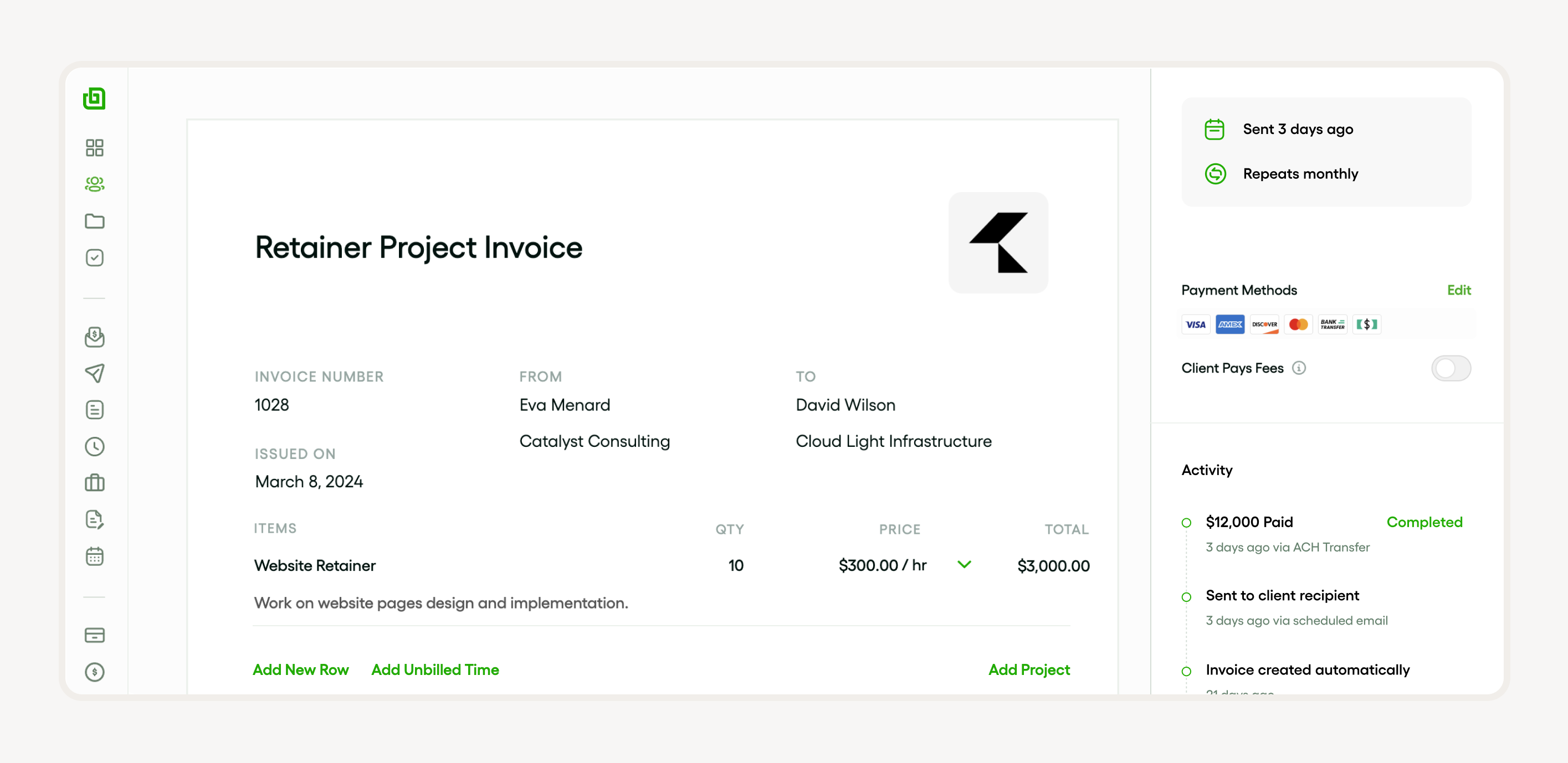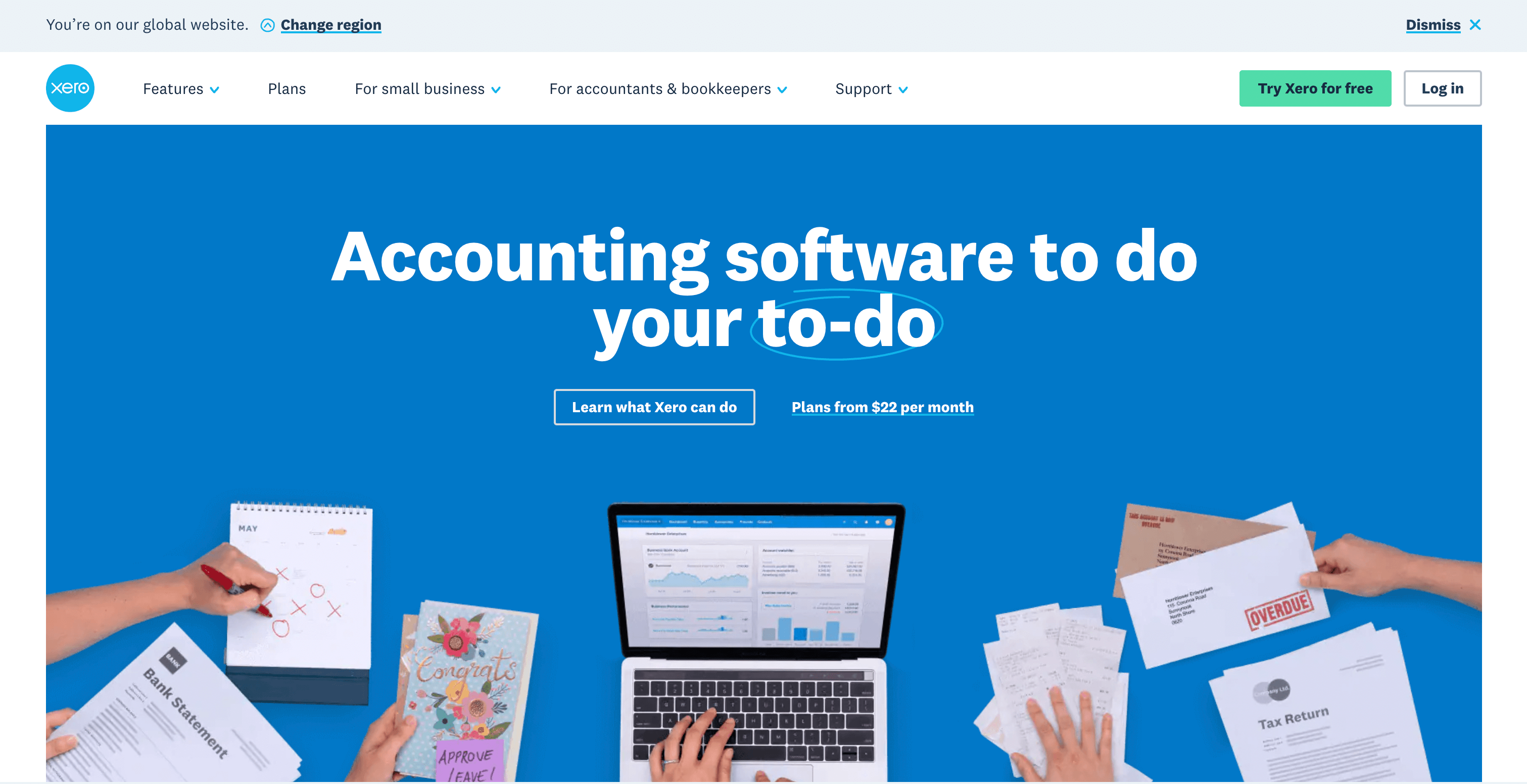Architects offer essential professional services, which is why they need every part of the business to operate smoothly. Aside from creating great designs, you must also be flawless in your project, financial management, and other areas like customer relationship management.
So, how do you manage all these without exhausting yourself or losing your creativity in the process?
If you're thinking automation, then we're on the same page.
Accounting software handles all your clients' information, income, and expense reports and keeps you informed about your business through detailed financial reports. You can also find accounting software that offers inventory management for the architecture industry. That way, you can actively focus on the creative aspect of your job.
Interesting, right? It gets even better.
To save you time choosing the perfect accounting system, we have compiled a list of some of the best accounting software for architects in 2022. Let's dive right in!
Note: Try Bonsai Tax to maximize your tax deductions for the upcoming year. Our software will scan your bank/credit card statements to discover potential tax write-offs and help you save thousands of dollars. In fact, the majority of users save $5,600 from their tax bill. Try a 7-day free trial here.
What Is Architecture Accounting Software?
Architecture accounting software is a financial management tool architecture firms use for project management and time and expense tracking. They are equally used to bill clients for each provided service.
An Accounting and project management software like Bonsai ensures that architects are on top of their company finances by tracking expenses and providing income reports, tax reminders, and lots more.
Some sophisticated project accounting software even offers enterprise resource planning solutions that allow architecture firms to combine data and processes across their accounting, human resources, project management, and other departments to optimize operational efficiency.
Top 5 Best Accounting Software for Architects in 2026
The best accounting software for architects strikes a balance between a feature-rich design for professionals and a simple user interface for those without accounting experience.
Here are the top 5 best accounting software for your architectural firm:
1. Bonsai

Bonsai Tax is reliable accounting software designed specifically for architects, freelancers, and self-employed workers. It allows them to automate and track expenses, create and send invoices, make or receive payments, and estimate taxes.
With one Bonsai account, you can sort out all your business needs and stay on top of everything with simple financial reporting and predictable tax payments. Their other accounting features, like smart invoices, ensure you save time and get paid without chasing clients around. Review our architect invoicing software to see all the benefits you could gain.With the latest updates on Bonsai, the software now offers a variety of other benefits that you don’t know about. For starters, the software offers estimated quarterly tax payments to streamline the process. Users can easily use it to maximize their tax payment efficiency and gain an edge.
The tool is also highly cost-effective as most users save over $5,000 by switching to Bonsai Tax. Moreover, the tool offers automated scanning for deductions you may have missed — helping you stay on track with your tax needs.
Pricing
- Starter -$ 17 /month
- Professional - $ 32/ month
- Business - $52 /month
Pros
Bonsai Tax is one of the most popular tools out there, with professionals focusing on all kinds of benefits for customers. The company has been leading the industry for many years and offers benefits you don’t find elsewhere. Here’s a list of pros that the software offers:
- Use Client Portals to provide an excellent user experience to your clients
- Present a professional image when sending proposals and invoices to potential clients
- Payment and payout options abound
- Manage projects and tasks with ease
- Keeping track of expenses and filing taxes
- For notifications, use the Hello Bonsai app
- Users save over $5,000
- Estimated quarterly tax payments
- Automated scanning for deductions
Cons
Bonsai Tax is great, but there are some limitations that you should remember. Here are the main cons that you should bear in mind too:
- Only English is available
- Payment options are geographically limited
- Automated expense tracking is only available in the United States and Canada

2. FreshBooks
Freshbooks is a cloud-based software offering accounting solutions to architectural firms and businesses of all sizes. Freshbooks has a plethora of features that enable accounting novices and experts to manage and track all of their business transactions.
Using Freshbooks saves you the headache and time you'd have spent crunching numbers instead of developing other significant areas of your architecture company. It does this by providing a mobile app and critical features like time tracking, invoicing, income and expense tracking, and so on. Discover more Freshbooks alternatives here.
Pricing
- Premium -Starting at $22.00Per Month
- Plus -Starting at $12.00Per Month
- Lite -Starting at $6.80 Per Month
Pros
Freshbooks has become the go-to option for many people needing business accounting software. The software now offers a variety of pros that can help you ease the process. Here are the main benefits:
- Freshbooks is designed for freelancers, small business owners, and solopreneurs.
- It’s simple to use
- Reasonably priced
- Makes it simple to stay organized.
Cons
With its comprehensive benefits, there are some major drawbacks that you might also deal with. Here’s a quick look at some disadvantages of the software you should keep in mind before deciding:
- For larger businesses or teams, FreshBooks has limitations
- Adding a team member to your account costs an extra $10 per month
- Lower-tier plans have a client limit.

3. Xero
If you own a small architecture firm or a mid-sized company, Xero is another excellent accounting software option to consider. It is a cloud-based tool designed to help independent architects and company owners get a complete perspective of their firm's financial standing.
This business accounting and bookkeeping software can save you a significant amount of time, money, and energy. Its key features include automatic invoicing and billing, financial reporting, and payroll management. Xero supports the sharing of financial data and integration with other apps like WorkflowMax, Lever, Synergy Practice Management, etc. Find the best Xero alternatives here.

4. QuickBooks
QuickBooks is ideal for startup design companies and architectural firms looking to scale. QuickBooks is accounting software for architects and professionals in construction, retail, manufacturing, non-profits, and more.
Small businesses can use QuickBooks to monitor multiple projects, keep track of inventories, create personalized invoices, and set payment reminders. The site is mobile responsive and works well on desktop, which is a bonus. Read more alternatives to Quickbooks.

5. NetSuite
NetSuite is highly comprehensive, making it one of the best architecture accounting software. It is a cloud-based enterprise resource planning software that allows architects to scale or merge their companies with others. NetSuite integration tools allow businesses to seamlessly connect various systems, including HR, PSA, ERP, CRM, inventory and supply management, and more.
This accounting solution provides precise data analysis and optimized business intelligence for designers and architects to get their company's financial situation under control. Several prominent US corporations, engineering firms, and SMEs utilize NetSuite software for its adaptable and resilient cloud computing.
How Do You Choose the Best Accounting Software for Your Architecture Firm?
To find the best accounting software for architects, whether it's the best accounting app or an all-in-one project management platform for small architecture firms, you should first assess your current tools and processes.
Determine what makes your team more effective and what hinders your performance. Look for patterns, such as recurring problems or effective practices that yield repeatable results.
Once you have this figured out, you can now proceed to choose accounting software. We recommend that you stick with established, efficient, and well-supported accounting products. In addition, when selecting accounting software, consider how easily it integrates with your time tracking and project management software.
As a result, we have built Bonsai Tax to address these needs.
Bonsai Tax is an all-in-one product suite with smart automation that lets you focus on your passion, not your paperwork. It is full suite automation and integration software for architects and freelancers that provides robust project management. Additional capabilities include business insights, tax filing, billings, invoicing, time and expense tracking, financials, and CRM tools.
Why is Bonsai the Best Accounting Software for You?
Save Time
We understand that working out accounting details is time-consuming, especially for people like architects and project managers who have no accounting background. As a result, we have built Bonsai to automate all accounting tasks for you, so you can focus on designing.
Win More Work
With just a few clicks on your phone or PC, you can create structured proposals with precise estimates to seal your deals faster.
Get Paid Always and Faster
Choose from various innovative invoicing features and global payment options such as credit cards, ACH, and PayPal. With Bonsai, you can manage your finances, save on taxes, get paid an average of thirteen (13) days faster, and have three (3) times fewer late payments.
Track Time Spent Working
Use the Bonsai time tracker on the web, mobile apps, macOS app, and Chrome Extension to keep track of time spent working on projects with your collaborators. Set a project’s hourly rate, start tracking time, and bill time to your client with a click, and round the time up to make the billing even smoother.
Control Your Finances
Have peace of mind knowing that all your financial information, including monthly profit, business expenses, and tax deductions, is accounted for in one place.
Invoice Like A Pro
Use smart invoicing features to create your next invoice automatically, remind your client for payment, accrue an overdue late fee, and send read-receipts. Try Bonsai's free architecture invoice template here.
Automate It
Auto-everything from creation, sending and reminding, and even automatic late fees. Send automatic contract and payment reminders to your client, as well as receive notifications for viewing and counter-signing.
Complete Projects Faster
Complete your day-to-day priorities with tasks that fit right into your project workflow. Add new jobs in seconds or reuse task templates you’ve saved on projects, start new timers, and invite collaborators to manage tasks together.
Final Thoughts
If you run an architecture business, then you need accounting software that can help you improve project planning, save time, and protect your profit margin.
Regardless of your business size, industry, or location, Bonsai has you covered. We proudly back people with wide-ranging businesses—from architecture, accounting, design, and writing to marketing and photography.
Bonsai has international coverage across the United States, Canada, the UK, Australia, and more, with 180 currencies supported. Sign up today to start your free trial!







